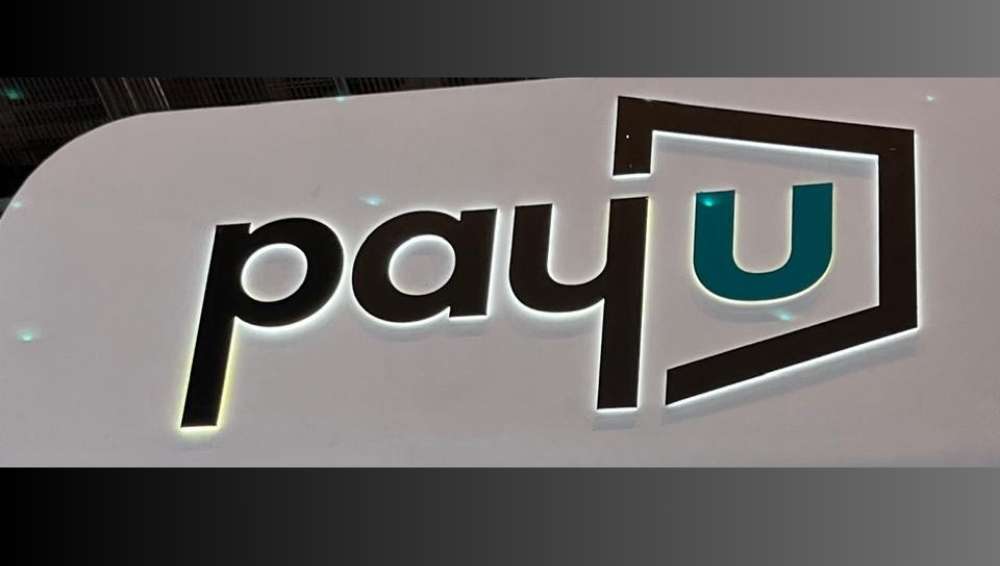Meesho was the poster boy of social commerce just a couple of years after its launch in 2015. It was seen as different from e-commerce, which was earning a bad reputation for heavily burning venture capital money. So, investors betting on the space made efforts distinguishing between the two.
In fact, in 2020, Peak XV Partners (formerly Sequoia Capital India) in partnership with Bain came out with a report “Unlocking the Future of Commerce in India”, which stated: Social commerce addresses a unique set of needs while complementing platform e-commerce. It essentially drew a line between the business model of social commerce and e-commerce.
In mid-2021, however, Meesho metamorphosed into a full-fledged horizontal e-commerce platform putting it in direct competition with e-commerce majors Flipkart and Amazon India.
While fears cropped up that Meesho would fizzle out like Snapdeal did in the face of cash burn and stiff competition, it has managed to hold its own.
It has even pipped older player Flipkart, which was acquired by Walmart in 2018, in filing papers for its initial public offering (IPO), and has also received the approval for the public offer from the Securities and Exchange Board of India (SEBI).
“What clearly worked for Meesho is its focus on smaller towns and cities despite the lower average order size. But if it wants to scale up it has to enter into Flipkart and Amazon India’s bastion ultimately while safeguarding its own stronghold,” an investor noted.
Interestingly, in the updated draft red herring prospectus (UDRHP), what is conspicuously absent is a comparative analysis of Meesho with Flipkart and Amazon India. Instead, it the UDRHP has chosen to benchmark itself with other “listed industry peers” like Eternal and Swiggy.
What is also notable is Meesho’s push for cloud investments even as it is locked in a legal battle with Amazon Web Services and its Machine Learning and Artificial Intelligence focus, where it plans to deploy a bulk of the funds it intends to raise through the IPO. We have you covered on this and other major data points from the UDRHP.
.jpg)
Like every tech IPOs that we are seeing this year and we witnessed in the funding boom year of 2021, Meesho's public offer is going to a big event for the exit starved venture capital investors.
Elevation Capital would get Rs 846-911 crore based on the number of shares it is offloading via the offer for sale (OFS), while Peak XV Partners would pocket Rs 529-568 crore. Both the investors are on a harvest mode as Elevation recently reaped from its investment in Urban Company while Peak XV Partners is plucking returns from the IPOs of fintech companies – Groww and Pine Labs this week
Notably, the value of shares of Rajul Garg, Meesho’s first investor, in the e-commerce company is Rs 950-1000 crore. And Garg, co-founder of Pine Labs and Global Logic, is expected to net about Rs 10 crore via the OFS by selling a portion of his stake.
Financials
Meesho’s revenue from operations increased to Rs 9,389.9 crore in FY25 from Rs 7,615.1 crore in FY24 and Rs 5,734.5 crore in FY23 while the company’s total expenses crossed the Rs 10,000 crore mark in FY25 at Rs 10,009.3.30.
The higher expenses of the company have been largely driven by what it classifies as other expenses, which overall stood at Rs 9120.2 crore in FY25. Within the other expenses, logistics and fulfilment expenses accounted for Rs 7,352 crore during the fiscal as compared to Rs 5,926.8 crore in FY24 and Rs 4,816.7 crore in FY23.
In the three months period ended June 30, 2025, Meesho’s total expenses was already at Rs 2,777.6 crore and Rs 1,955.3 crore accounted for the logistics and fulfilment expenses.
With high costs, it means Meesho is still in the red. The company’s net loss expanded to Rs 3,941.7 crore in FY25 from Rs 327.6 crore in FY24 and Rs 1671.9 crore in FY23. However, it should be noted that Meesho’s losses were largely attributed to the taxes it had to pay to flip back to India. It paid $288 million, or Rs 2,461 crore, in the process.
Still, Meesho’s losses not only mirrors the broader trend of the new age companies which are grappling to turn a profit but the struggles of its larger and older peers Flipkart and Amazon India for whom, profit has remained elusive. It is also interesting to note how the gross merchandise value (GMV), which used to be the key metric for these older ecommerce companies, is no longer the talking point.
Meesho noted that it has continually reduced the average cost charged to sellers as it seeks to enable consumers to access a wide range of products at low prices, as sellers on its platform benefit from low costs. This is reflected in the falling average order volume. Meanwhile, number of placed orders increased from 102.4 crore in FY23 to 183.4 crore in FY25.
If order volume increases but its logistics cost per order falls, it can pass part of that efficiency to sellers -- reducing fees -- while still earning the same or higher net revenue per order. Meesho's cost per order, which include logistics, fulfilment, and other delivery costs, dropped from Rs 50.45 in FY23 to Rs 43.08 in FY25, thanks to its in-house logistics arm Valmo. In the quarter ended June 2025, the cost has come down further to Rs 37.70.
Notably, apparel accounted for a bulk of the total placed orders even as its overall share has been falling over the years while the share of home, kitchen and furnishings have been growing.
Cash-on-delivery (CoD)
A large portion of orders on Meesho are paid using CoD, noted Meesho, which indicates that despite big talks about India’s digital drive cash continues to be king in smaller regions that Meesho primarily caters to. The preference over cash could also be attributed to trust factor as online shopping is still a new habit.
While there has been a decrease in reliance on CoD, over the years it still remains significantly high at 76.95%, 85.39% and 88.71% of the total shipped ordrers, in fiscals FY25, FY24 and FY23, respectively. In the first quarter of this fiscal year, 75.09% of the shipped orders were on CoD basis.
“CoD reduces the rate of successful deliveries and increases operational inefficiencies and risks related to cash handling,” it noted and is reflected in the data shared by Meesho.
It revealed that the success rate of its CoD in fiscals FY25, FY24, and FY23 were 77.7%, 78.6% and 76.57%, respectively. Its success rate in the three months ended June 30, 2025 was at 75.55%, indicating that this is going to remain a pain point for the company.
Meesho has noted that it has taken steps to curb CoD and encourage users to adopt prepaid payment options. Still there is no assurance that prepaid orders will scale fast enough to mitigate the use of CoD and reduce its associated risks, it pointed. The e-commerce giant revealed that it filed complaints against delivery vendors not depositing cash collected. For example, on May 15, 2024, Meesho filed a complaint before the Marathahalli Police Station, Bengaluru, against 35 delivery vendors for allegedly failing to deposit the CoD amounts collected by them with the company.
The CoD data is not available for Flipkart and Amazon India but it is believed that 65% chose COD in 2024, as per an IIM-Ahmedabad survey. Besides, Flipkart and Amazon India had started charging extra fees on CoD that are often in addition to other platform or delivery fees that may apply, particularly on low-value items.
Disputes
Meesho has disclosed that it is involved in arbitration proceedings with Amazon Web Services India Pvt Ltd (AWS) for allegedly non-payment of invoices. Meesho said that it has disputed the invoices raised by AWS alleging deficiencies in the services provided by AWS.
AWS has claimed an amount of Rs 127.4 crore comprising spend commitment shortfall payment amount, pending service fees, interest on the respective payments and the cost of arbitration. Meesho in turn has filed a counterclaim amount of Rs 86.4 crore, citing losses suffered due to disruption of business and inadequate support provided by AWS. The matter is currently pending.
Meesho also revealed that it is involved in a GST dispute worth Rs 14.2 crore relating to demands towards applicability of tax collected at source (TCS) on the value of supplies made by the reseller. It noted that the outcome of the dispute will not have a material impact on the company’s finances.
The startup also has an ongoing dispute with Workshala, landowner of the erstwhile office premises amounting to Rs 7.2 crore.
The updated DRHP also lists three criminal proceedings filed against the company including by the drug inspectors of the Food and Drugs Administrative Department alleging illegal sale of abortion kits by sellers registered on its platform. The matter is currently pending. It also disclosed litigation filed against its directors including founders Vidit Aatrey and Sanjeev Kumar for alleged non-receipt of reimbursements for undelivered or lost parcels.
Valmo
The updated DRHP shows that Meesho is betting big on Valmo, its asset-light logistics platform. This makes sense as logistics and fulfilment costs continue to constitute the biggest chunk of its expenses
Valmo's average cost per shipment for a surface delivered shipment weighing 0.5-1kg is 1-12% lower than that of the average cost per shipment (for a shipment of similar specifications) of the scaled e-commerce logistics providers in India in the last twelve months ended June 30, 2025, it noted. Its share of total shipped orders has also been substantially growing.
New initiatives: financial services and grocery
As part of its new initiatives, Meesho has entered the financial services and grocery businesses as well. In its own words, these sectors are "highly competitive", rapidly evolving, and subject to complex regulatory environments. Both the segments already have heavily funded venture capital players and traditional corporate houses like Reliance are pushing to make a dent in these areas as well. In the grocery space, venture backed quick commerce players like Zepto, Instamart and Blinkit are battling it out with no profits in sight. So, it will be an uphill task for Meesho to crack the code and its financials for the period it is operating in clearly show that they are still figuring these businesses out.
The company's financial services entity Meesho Payments, which was set up in 2019, recorded Rs 5.6 crore in losses during the June quarter. The unit's losses have only grown from Rs 94 lakh (FY23) to Rs 9 crore (FY24) to Rs 26 crore during FY25. Meesho's grocery bet, on the other hand, reported Rs 14 crore loss during Q1 FY26 and Rs 79 crore in the full financial year ended March 2025.
Cloud investments
Meesho aims to use Rs 1,390 crore to invest in its cloud infrastructure. Of the total the company plans to deploy Rs 610 crore each in FY27 and FY28, and Rs 170 crore in the first quarter of FY29.
By investing in cloud infrastructure, the company seeks to improve operational efficiency by streamlining processes, reducing downtime, and enhancing service delivery.
“Such investment is crucial in ensuring continued service availability by minimizing disruptions, preparing us to deal with technical failures as they arise and maintaining reliable service, including during peak demand,” it noted.
The company also uses cloud tools to scan for risks like public exposure, misconfigurations, or excessive access permissions, helping us fix issues before they become problems.
The company’s cloud infrastructure expenses have increased from Rs 384.2 crore in FY23 to Rs 427.2 crore in FY24 to Rs 454 crore in FY25. In the three months ended June 30, 2025, it spent Rs 141.2 crore on its cloud infrastructure.
Cloud investments have been a crucial strategy for new age companies to update their tech. Recently, Urban Company , India's largest home-services provider, which listed on the stock exchanges in September, also had earmarked to spend 40%-50% of its net proceeds towards new technology development and cloud infrastructure.
Machine Learning and AI spends
Meesho aims to use Rs 480 crore for payment of salaries of its existing and replacement hires for the machine learning (ML) and AI, and technology teams. The company plans to deploy Rs 240 crore of the total in FY27 and the remaining half in FY28.
Meesho’s number of employees in the ML and AI team has increased from 66 as on March 31, 2023 to 97 as on March 31, 2025. In a span of three months that number went up to 155 as on June 30, 2025. Interestingly, between FY23 and FY24, the number of employees in the team remained unchanged at 66.
In terms of its technology team, the number of employees declined from 790 by the end of FY23 to 590 by the end of FY24. The number went up to 780 as on March 31, 2025 and to 981 as on June 30, 2025.
This indicates that Meesho has been aggressive in beefing up its ML and AI and technology team in the first three months of the current fiscal year.
The company has already spent Rs 16.6 crore on salaries for the ML and AI teams in the three months ended June 30, 25. It had spent Rs 45.3 crore in FY25, Rs 42.4 crore in FY24 and Rs 36 crore in FY23. For the technology team, Meesho allotted Rs 78.2 crore in the three months ended June 30, 2025 as compared to Rs 248.4 crore in FY25, Rs 246.1 crore in FY24 and Rs 317.7 crore in FY23.
Attrition rate in the ML and AI team was 16.67% in FY23, 30.3% in FY24, and 12.27% in FY25. In the three months ended June 30, 2025, the team has seen an attrition rate of 3.97%.
Attrition rate in the technology team was 37.05% in FY23, 48.73% in FY24 and 30.39% in FY25. In the three months ended June 30, 2025, attrition rate in the technology team stood at 5.57%.
Meesho noted that it intends to retain its existing ML and AI, and technology teams and would hire specialised professionals to fill in any departures to ensure the continued delivery of its AI/ML and technology capabilities.
Meesho’s investments in AI is reflective of the larger trend seen across industries but the question is will it be enough as its competitors Flipkart and Amazon have deeper pockets and foreign parents with sophisticated tech firepower. With its investments in tech, it will also be interesting to see if like Amazon, it will begin to shed its manpower. Amazon earlier this month said it will lay off around 14,000 corporate jobs, Meesho’s total number of full time employee was at 2,009 as on June 30, 2025 as compared to 1,710 as on March 31, 2023, while its attrition rate was down 33.94% in FY25 and 53.45% in FY23.
After its pivot from social commerce to e-commerce, it will be interesting to watch if its AI bet will transform into a leader in the space.
- Infographics by Muskan Singh


.jpg)
.jpg)









![Wibmo CEO Suresh Rajagopalan resigns: sources [Exclusive]](/upload/theheadandtale.com/2024/10/1728602219_payu_layoff_lead.jpg)
